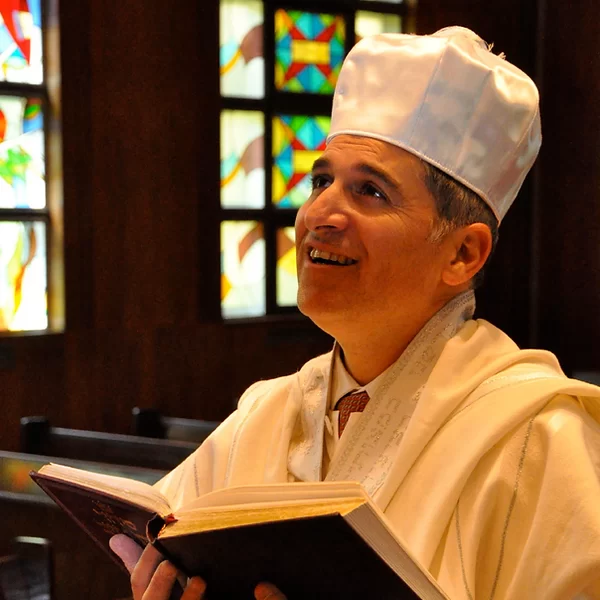As the golden light of Friday afternoon begins to fade and the sacred hours of Shabbat descend, my mind often drifts back to the luminous memories of childhood family games that defined our weekly day of rest. I remember gathering around our wooden table, hearts light and time suspended, as we dealt cards, moved chess pieces, and rolled dice for endless rounds of Monopoly and backgammon with my parents, brothers, and sisters.
The pure joy of those uninterrupted moments together—the thrill of victory, the shared laughter, the simple pleasure of being present with one another—still brings warmth to my heart, a smile to my face, and even tears to my eyes.
These weren’t just games. They were the threads that wove our family’s Shabbat tapestry, creating precious memories that continue to resonate decades later.
Shabbat, the Jewish day of rest, offers families a precious opportunity to disconnect from the digital rush and routine world and connect with each other in meaningful ways. The restrictions on Shabbat give us great opportunities for the family to engage in various games and activities that enhance the joy and sanctity of this special time while creating lasting memories.
Building Family Traditions
Shabbat offers unique opportunities for building family traditions. Many families reserve special activities exclusively for Shabbat, making them more meaningful and anticipated. This might include dedicated time for reading together, sharing personal stories, or discussing the week’s events thoughtfully and unrushed.
Creating a Positive Atmosphere
The key to successful Shabbat activities lies in preparation and attitude. Having designated Shabbat-appropriate games readily available and creating a positive, relaxed atmosphere helps family members embrace these screen-free activities. The absence of electronic entertainment often leads to more creative play and deeper family connections.
It’s amazing to see how children who might usually be glued to screens become completely engrossed in simple games and family interactions on Shabbat.
Keeping it Kosher and Meaningful
Shabbat games and activities don’t need to be elaborate to be meaningful. The most important aspect is that they bring family members together, promote joy and relaxation, and maintain the sacred character of the day. By choosing appropriate activities and approaching them with the right mindset, families can transform Shabbat into a weekly celebration of togetherness and spiritual growth.
Traditional Games That Bring Families Together
Many traditional games are perfectly suitable for Shabbat observance, as they don’t involve writing, electricity, or creating permanent marks. Chess, checkers, and backgammon have long been favorite Shabbat activities, as they align perfectly with Shabbat’s sacred guidelines. The beauty of these games lies in their simplicity and timelessness.
Verbal games are another popular choice, with classics like “Jewish Geography” (connecting people through their relationships and communities) or “Chain of Ideas” promoting engaging conversations and mental stimulation.
These interactive word puzzles can be played around the Shabbat table or while relaxing in the living room. They require no materials and are suitable for almost all ages, and they often lead to wonderful conversations and discoveries about family connections and shared experiences.
Family-Friendly Card Games
While some communities have different customs regarding playing cards on Shabbat, many families enjoy card games using cards specifically designated for Shabbat use.
Popular choices include memory games, Go Fish, and other simple card games that bring joy without involving gambling or money. These games are particularly engaging for younger children while still entertaining for adults.
Indoor Physical Activities – why not?
Movement-based games that don’t involve writing or creating can be excellent Shabbat activities.Simon Says, charades, and gentle indoor treasure hunts (using pre-placed items) provide opportunities for physical activity while maintaining the spirit of Shabbat.
These games are especially valuable during winter months or inclement weather when outdoor activities might be limited. What makes it even more fun is when another family comes for a Shabbat visit, and the two families play together, creating bonds that often last for a long time.
Outdoor Adventures
When the weather permits, outdoor activities can make Shabbat especially memorable.
Taking family walks through nature, playing ball games, or organizing simple races can help children expend energy while appreciating God’s creation. Many families establish regular Shabbat afternoon walking routes, turning these outings into cherished weekly traditions. These walks often become times for deep conversations, sharing stories, and simply enjoying each other’s company without the usual weekday distractions.
Learning Through Play
Educational games that focus on Jewish themes can enhance Shabbat’s spiritual dimension while maintaining its fun aspect. Parsha (weekly TorahRefers to the first five books of the Hebrew Bible, the Tanakh, also called the Five Books of Moses, Pentateuch or the Hebrew equivalent, Humash. This is also called the Written Torah. The term may also refer to teachings that expound on Jewish tradition. Read more portion) quizzes, stories with moral lessons, and discussions about Jewish history can be transformed into engaging games.
These activities not only entertain but also fulfill the mitzvah of Torah study on Shabbat. Some families create their own traditions around this, like acting out the weekly parsha or having competitive Torah trivia games.
I find that the simple traditional games played with all the family, especially with my parents, with joy and simplicity, gave our Shabbat days a flavor of love, warmth, and security that build a strong defense wall for life.
Those moments of pure connection, laughter, and togetherness become the foundation of our family bonds and Jewish identity. Those simple fun and deep moments are the ones creating memories that we carry with us throughout our lives and pass down to future generations.
Author
-

Born in Jerusalem (1965), Boaz Davidoff is a cantor, musician, and rabbinical student living between Israel and Montreal. He was a fellow in the first cohort of the Exploring Judaism's Writer's Fellowship. He serves as cantor at Montreal's Shaarezedek Synagogue and teaches Bar-Mitzvah, voice, and guitar in Israel. Boaz performs concerts solo and with his band across Israel. Currently in his final year of rabbinic studies at Jerusalem's Schechter Institute, he occasionally substitutes as rabbi in Montreal. Married with three children, Boaz is passionate about Israel, organizing charity concerts and events to support the country. He combines his musical talents with religious leadership, bridging communities in Canada and Israel.
View all posts






